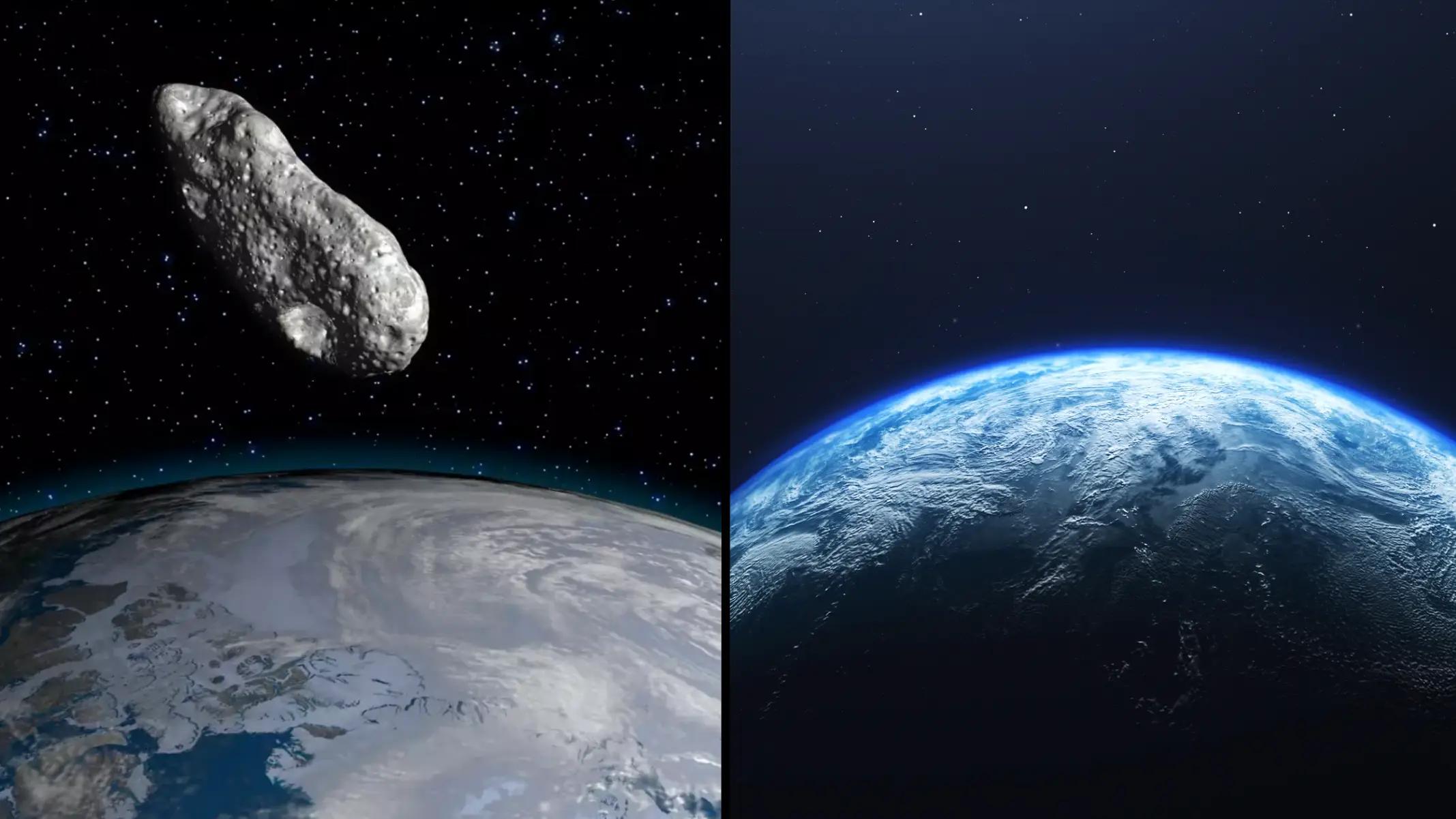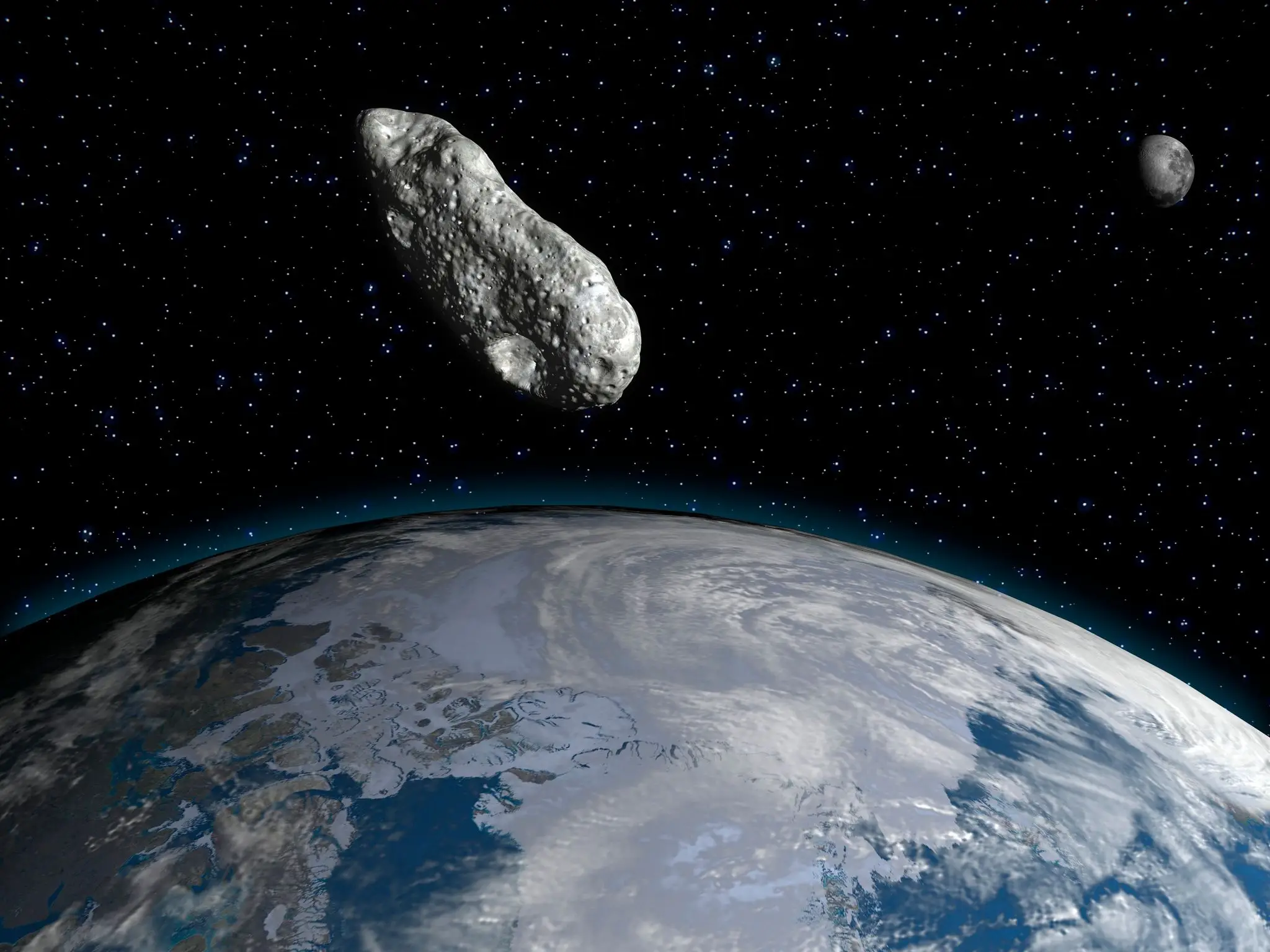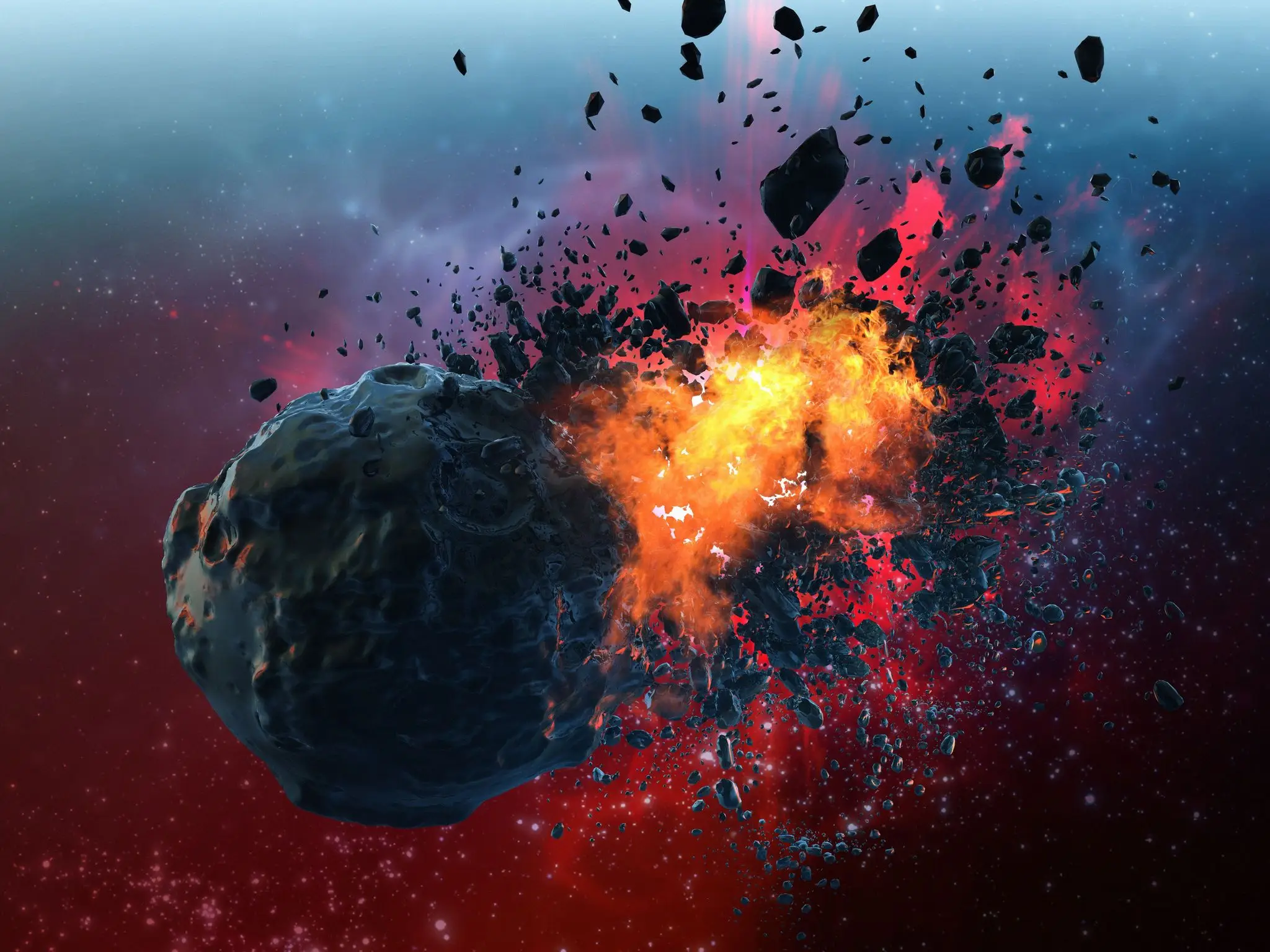
After previous reports batted away the idea that Earth could be smashed into smithereens by the God of Chaos asteroid, it turns out it could actually happen.
The giant rock was first spotted in 2004 and given the astral title of 99942, but after it was found that it carried a 2.7 percent chance of knocking our little planet out of the solar-sphere in 2029, it was dubbed the God of Chaos.
The 340-metre-wide asteroid was named after the Egyptian God of Chaos and destruction Apophis, which is fitting.
However, while experienced asteroid gazers decided there was no way it would crash into us in 2029 or 2036, an update came from a Canadian space expert called Paul Wiegert, who says otherwise.
Advert
Wiegert co-wrote a new study about it which was published in The Planetary Science journal and found that an object as small as two-feet could change how it travels.

People have been warned that it would brush past us on Friday, April 13, 2029.
Now that would be a very unlucky Friday the 13th.
Even though it was initially thought to be at a 18,300 miles distance from Earth, Wiegert believes that the course could be dramatically changed if Apophis comes into contact with ant ‘small object’ in its path.
So, if it happens to knock into a rock in space, it could hurdle into us?
Maybe, yeah.
The expert explained his theory, as reported by the Daily Star: "The odds of an unseen small asteroid deflecting Apophis enough to direct it into a collision with Earth in 2029 (d 3.4 m, v > 5 102 m s1) are approximately 10-8.”
Apparently, the chance that the bump could set the rock on a path to destroy Earth, isn’t actually very likely and there’s a one in two billion chance that it’s going to happen.

Wiegert explained: "Given that only five percent of such impulses are in the correct direction to generate an Earth impact, the overall probability of a small impact directing Apophis into a collision with the Earth is less than one in two billion."
So it sounds like - unless we're extremely unlucky - there's nothing to worry about.
But the expert did share a strange bit of information which doesn’t make anyone feel at ease by his words.
He shared that the asteroid has basically been left to its own devices in space, saying: "An additional element of the story is that Apophis has been largely unmonitored by telescopes since May 2021 and will remain so through 2027.
"This arises simply because of the relative geometry of Apophis, Earth, and the Sun, which puts the asteroid in the daytime sky for the time span in question."
Mm, I don’t know about you, but that’s not a comforting thought.
